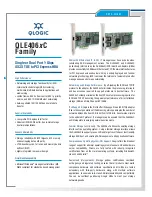
6
Your Phone and its Environment
Inadequately protected electronic equipment may be
affected by radio waves. This interference can lead to
accidents. Listed below are the most dangerous situations
in which this can occur. Do not hesitate to inquire whether
or not your phone can affect surrounding equipment.
Vehicles
Check with the vehicle manufacturer that electronic
equipment used in your vehicle will not be affected by
radio energy.
Aircraft
• Switch off your phone when in an aircraft. The use of
phones while airborne is illegal in some countries. It
may disrupt the operation of the aircraft or of the Iridium
network. Failure to observe these warnings may lead to
suspension or denial of access to the network or to
legal action.
• Check with a member of the aircraft crew before you
use your telephone in or around an aircraft on the
ground.
Blasting Areas
Switch off your phone in any areas where you are
requested to turn off radio transmission devices, such as
quarries or other areas where blasting is in progress.
Explosive Environments
It is dangerous to use your phone in potentially explosive
environments.
• Switch off your phone in any area with a potentially
explosive atmosphere. This includes areas in which
petrol or other inflammable chemicals are handled
(service stations, fuel depots, chemicals plants, etc.)
and areas where the air contains dust particles, such as
metal powders or seeds.
• If you wish to use your phone in a vehicle used for
transporting flammable substances (even when parked)
or vehicle powered by liquefied petroleum gas (LPG),
check first that the vehicle complies with the applicable
safety regulations.
Medical Equipment and Hospitals
• Switch off your phone in hospitals, clinics and other
health care facilities where you are requested to turn off
radio transmitting devices. These establishments may
use equipment that is sensitive to radio emissions.
• If you have any questions about the radio wave
shielding on electronic medical devices that you
yourself use (pacemakers, hearing aids, etc.), contact
the manufacturer of the medical device.
Using Your Phone Efficiently and Safely
Using your phone in the most efficient manner will improve
the performance of your phone, reduce radio emissions
and reduce battery consumption.
• Always extended the antenna fully before using the
phone.
• For your own safety as well as for the satisfactory
operation of the phone, you are advised to use the
phone only in the normal operation position (with the
antenna extended over your shoulder and the earpiece
to your ear).
• For best performance, avoid touching the antenna while
a call is in progress.
• Do not use your phone if the antenna is damaged.
Touching a damaged antenna could inflict a minor skin
burn. Have a damaged antenna replaced by a qualified
technician. Make sure that it is replaced only with the
antenna recommended by KYOCERA.
• Avoid low reception areas (such as in a tunnel or
between tall buildings). In low reception areas, the
symbol on the LCD panel shows fewer than 3 bars. If
possible, move to a more favorable location.
• Do not use a battery charger other than those specified
in the KYOCERA catalog. Use of any other type of
charger may be dangerous and will invalidate the
phone’s warranty.
• Do not allow metal objects (keys in your pocket, etc.) to
short-circuit the battery contacts.
• The radio equipment must be connected to the antenna
via a non-radiating cable (e.g.coaxial).
The antenna must be mounted in a position such that
no part of the human body will normally rest close to
any part of the antenna unless there is an intervening
metallic screen, for example, a metallic roof.
Using Your Phone Responsibly
Safe use of the phone is your responsibility. Careless
handling of the phone can result in harm to others and
damage to the phone itself. To avoid such problems, read
and follow all the security instructions presented here and
make them known to anyone borrowing your phone. To
prevent unauthorized use of your phone:
• Keep your phone in a safe place and keep it out of the
reach of small children.
• Avoid writing down your PIN code. Try to remember it
instead.
• Switch off the phone if you are going to leave it unused
for an extended period.
• Use the Security menu to restrict the calls that can be
made from your phone.
• Use the Security menu to change the security code
after you purchase the phone.
CAUTION!
Your phone is not a toy. Keep it in a safe place and out of
the reach of small children. Children could hurt
themselves or others and could damage the phone.
Using Your Phone While Driving
• Avoid using your phone while driving, except in an
emergency.
CAUTION!
Using your phone and driving at the same time can be
dangerous as it lowers your concentration.
• You should always concentrate solely on driving.
Whenever possible, pull off the road and park before
using your phone.
• If you want to use your phone while driving, install the
hands-free kit that is available for that purpose.
• Respect the local regulations in countries where you
drive and use your phone.
• Check with the manufacturer of your car that the
electronic equipment used in your car will not be
affected by the radio waves emitted by your phone.
CAUTION!
The use of an alarm system to operate a vehicle's lights
or horn to indicate an incoming call is prohibited on public
roads in some countries. Check the local regulations.






































